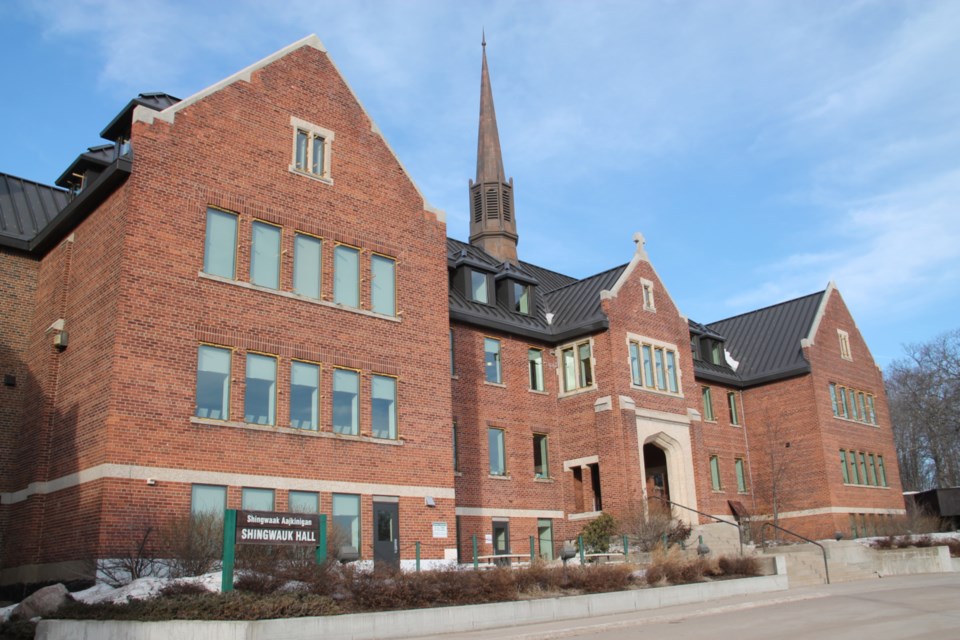A major expansion of Algoma University’s School of Computer Science and Technology will result in modernized labs for students, expanded capacity for increased enrolment, and new applied research partnerships with industry.
Although the project has been in the works for some time, the arrival of COVID-19 had put it in jeopardy, noted Algoma’s president, Asima Vezina. But funding of $1.98 million from FedNor has meant that the project can move ahead.
“What we’re looking at is the development of what will be a critical ICT (information and communications technology) ecosystem in the North,” Vezina said during an online announcement on Jan. 26.
“We want to contribute to building that ecosystem to ensure that our region and our community will have the talent and the graduates that are going to be required to compete globally in what is being coined as the ‘economy of the future.’”
The funds provided by FedNor will be used to expand the physical space and enable the school to increase program capacity.
Space in its programming is currently tapped out, Vezina noted, and yet graduates have close to a 100 per cent employment rate, putting them in high demand.
“One of the things that the School of Computer Science has made very clear is they want to create spaces that really produce creative, innovative thinkers in our graduates,” she said.
“They want us to be partnering with industry, with the community to help solve real problems, with our students at the forefront.”
Construction on the physical space is currently underway, and it’s expected to be ready to welcome students in September 2021.
Want to read more stories about business in the North? Subscribe to our newsletter.
Dr. Simon Xu, the school’s director, said they’ll now have additional capacity in teaching and tutorial labs, as well as a unique gaming lab and spaces for student collaboration.
Programming is currently offered in the Sault and at the school’s Brampton campus, but a near-term goal is to also offer it in Timmins.
Creating space for high-end computers additionally means that Algoma will be able to support programming at the Bachelor, Master’s and certificate levels, Xu noted.
He also expects to see an increased ability to embark on more research projects.
“In addition to delivering an innovative, cutting-edge computer science program, our faculty are engaged in research in a number of growing areas within the ICT sector, such as computer interface, wireless networking, computer gaming, robotics, and software evolution,” Xu said.
“I believe this project will allow faculty and students to expand current research and focus on the new research areas.”
Vezina said this project is in line with Algoma’s strategic plan, which has a goal to increase enrolment to 3,000 students within five years.
That goal became more precarious after COVID-19 hit, with the school predicting a 20 to 30 per cent decline in enrolment, she said.
To overcome that challenge, she said, “it’s going to be critical that we are driven by vibrant and innovative programming.”




